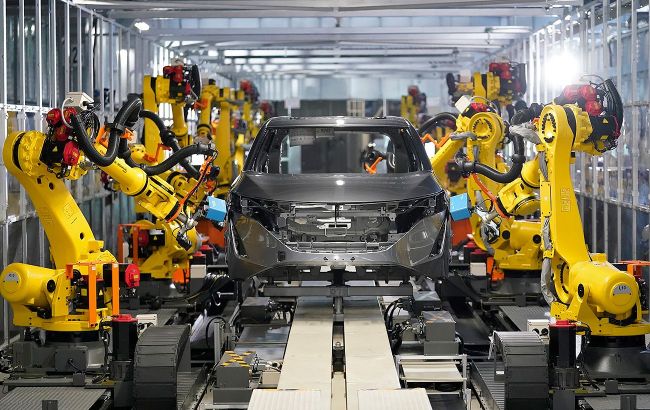Honda, Nissan in talks for potential merger
 Photo: Honda and Nissan are in merger talks (nissan-global com)
Photo: Honda and Nissan are in merger talks (nissan-global com)
Japanese automakers Honda and Nissan are in talks to deepen their ties, including the possibility of a merger. Such a merger would create a company valued at $54 billion with an annual production capacity of 7.4 million vehicles, making it the third-largest automotive group in the world by vehicle sales, following Toyota and Volkswagen, according to Reuters.
In March, the two companies already entered into a strategic partnership to jointly develop electric vehicles. Nissan's financial and strategic problems, which have intensified in recent months, have heightened the necessity for closer collaboration with its larger competitor, Honda.
Negotiations between Honda and Nissan, first reported by Nikkei, aim to facilitate closer technological cooperation and help create a more formidable competitor to Toyota in the domestic market.
According to Reuters anonymous sources, discussions focus on finding ways to strengthen collaboration, including the possibility of establishing a holding company.
One source said that the companies were also considering a full merger and exploring potential avenues for cooperation with Mitsubishi Motors, in which Nissan holds a 24% stake as the largest shareholder.
Honda's market capitalization is approximately $44 billion, while Nissan's is about $10 billion, meaning a full merger would surpass the $52 billion mega-deal between Fiat Chrysler and PSA in 2021, which created Stellantis.
A changing landscape
Over the past year, Tesla has sparked a price war in the electric vehicle market, and BYD has increased pressure on automakers struggling with next-generation cars. This has pushed companies like Honda and Nissan to seek ways to reduce costs and accelerate vehicle development, with a merger being an important step in that direction.
"In the mid- to long-term, this is good for the Japanese car industry as it creates a second axis against Toyota," said Seiji Sugiura, a senior analyst at Tokai Tokyo Intelligence Laboratory.
According to him, constructive rivalry with Toyota is a positive factor for Japan's stagnant automotive sector as it faces competition from Chinese automakers, Tesla, and others.
Any merger would face close scrutiny in the United States. President-elect Donald Trump pledged to take a tough stance on imported cars, including threats to impose 25% tariffs on vehicles supplied from Canada and Mexico.

